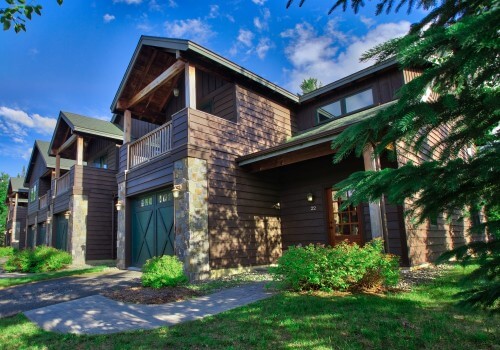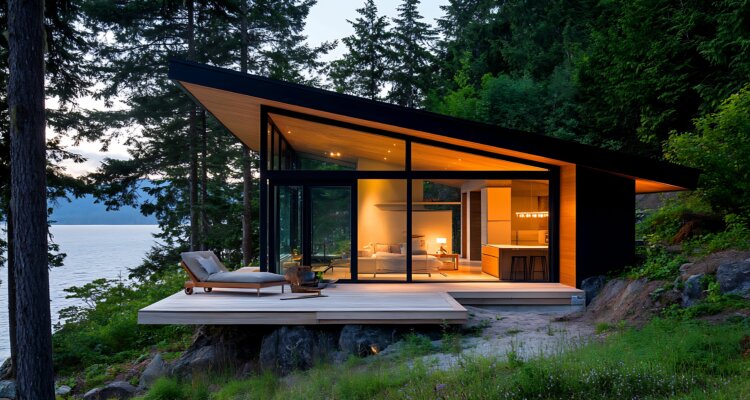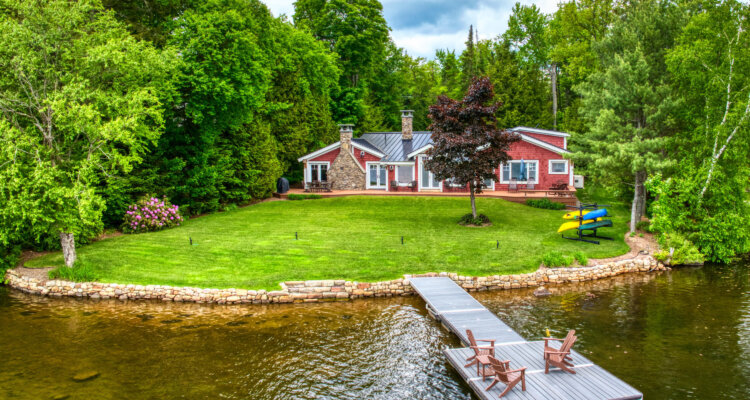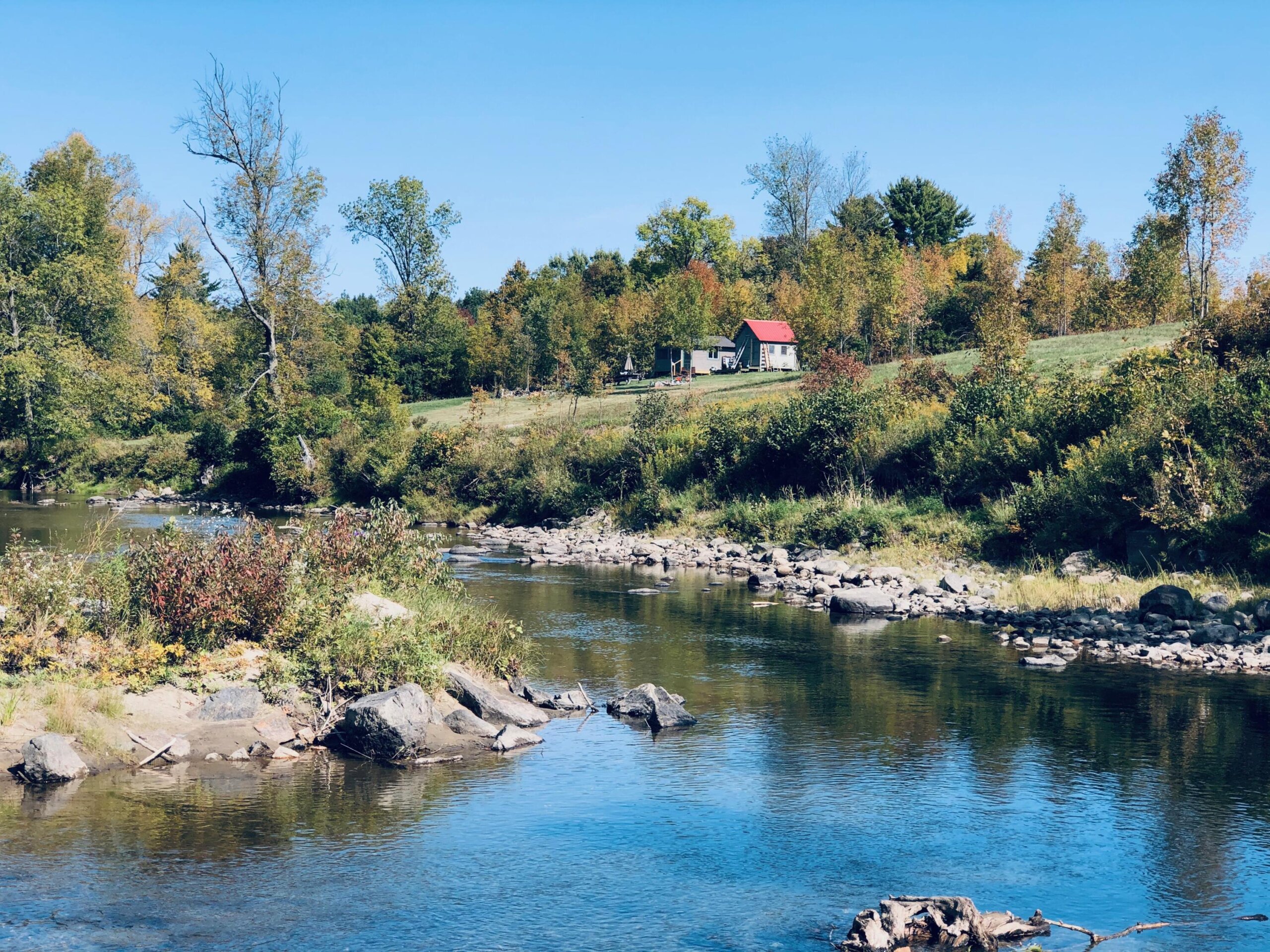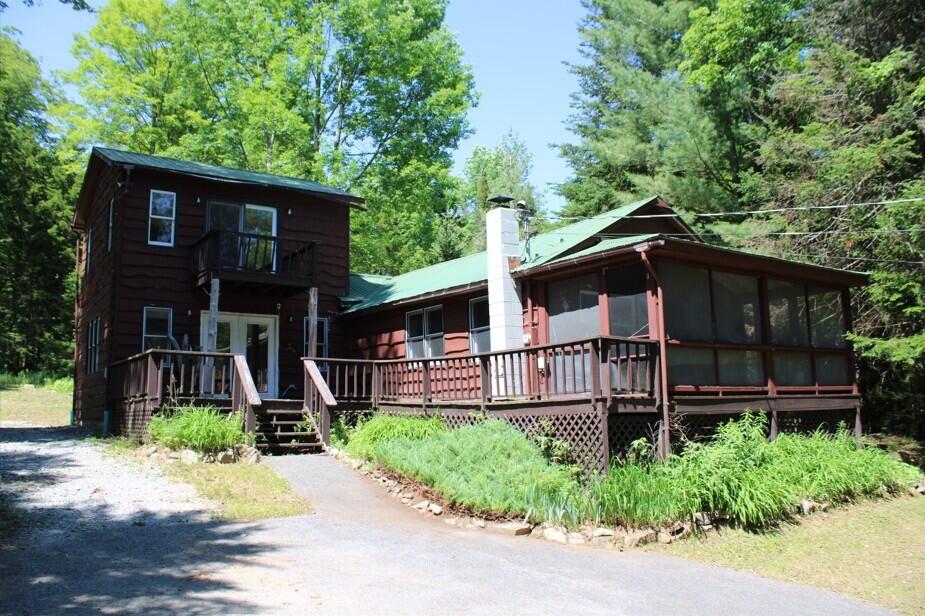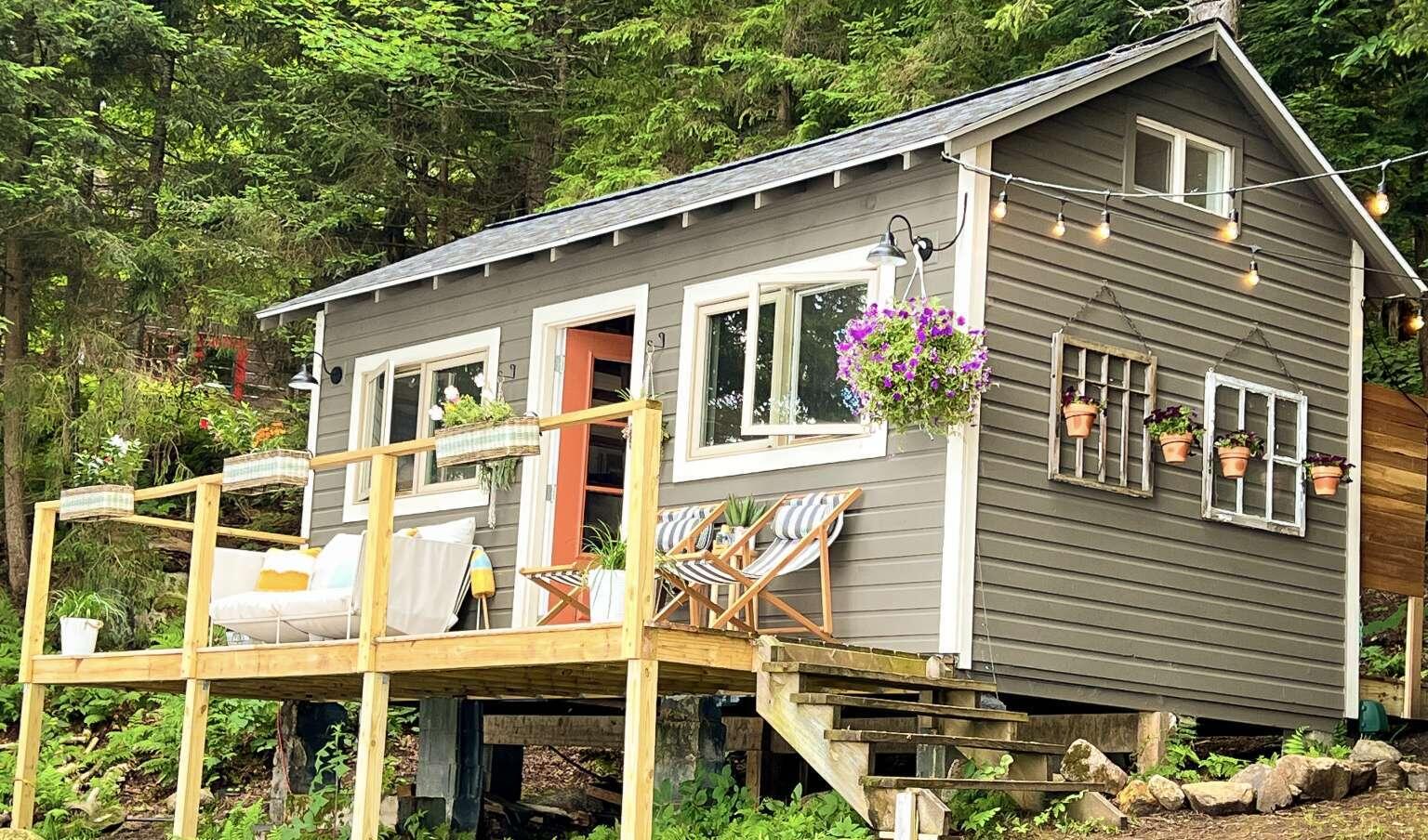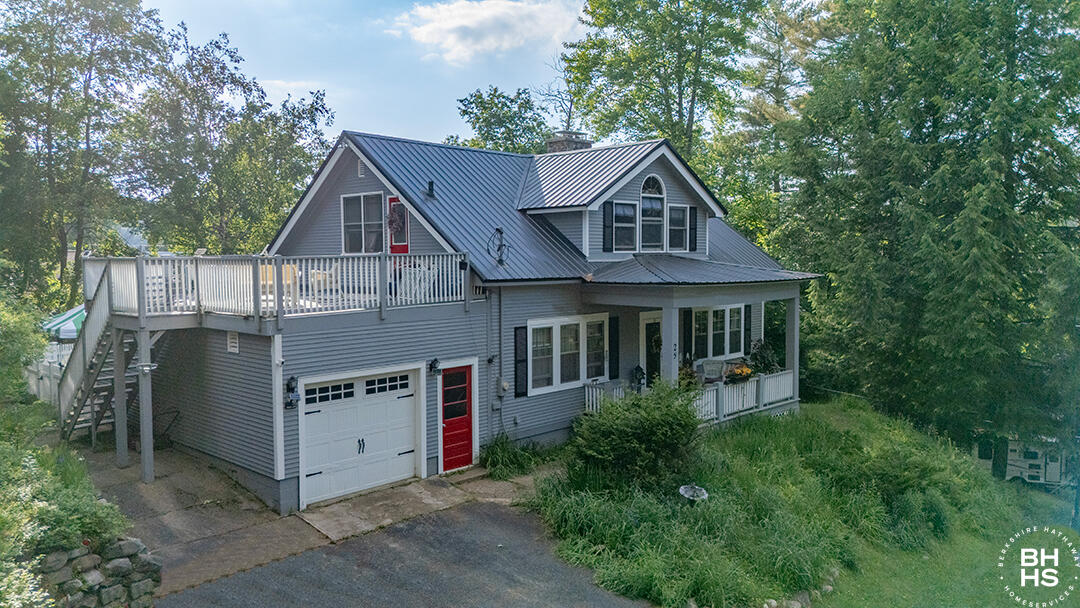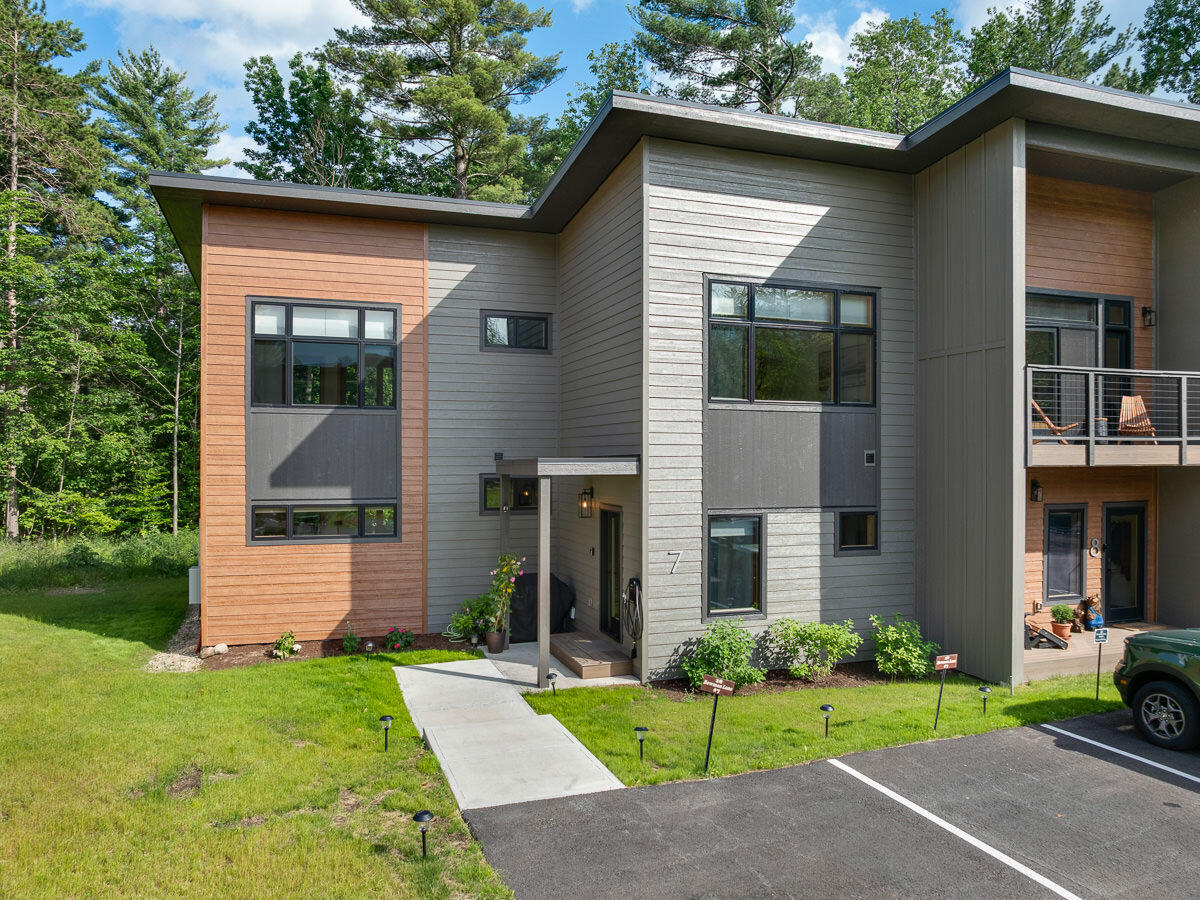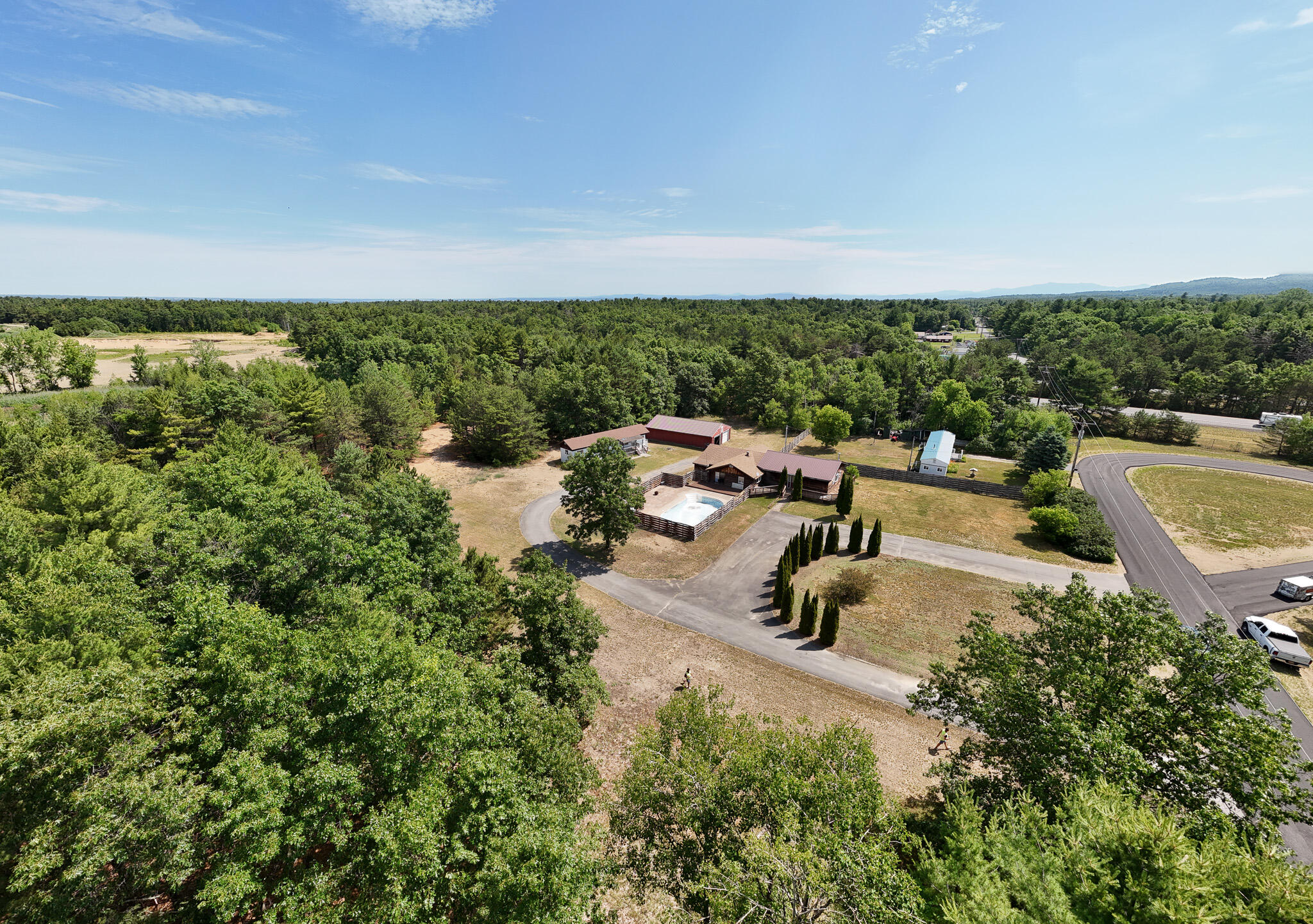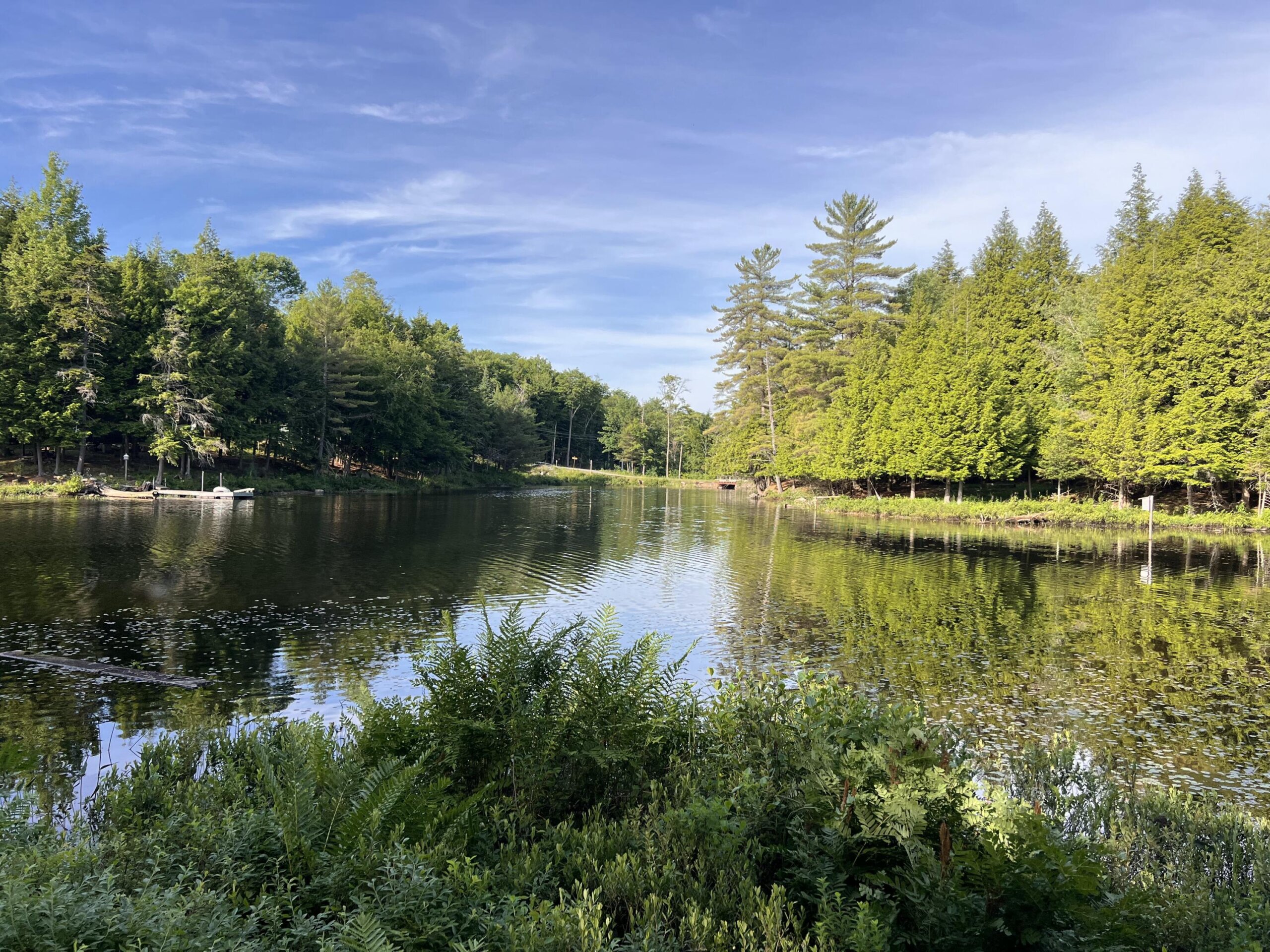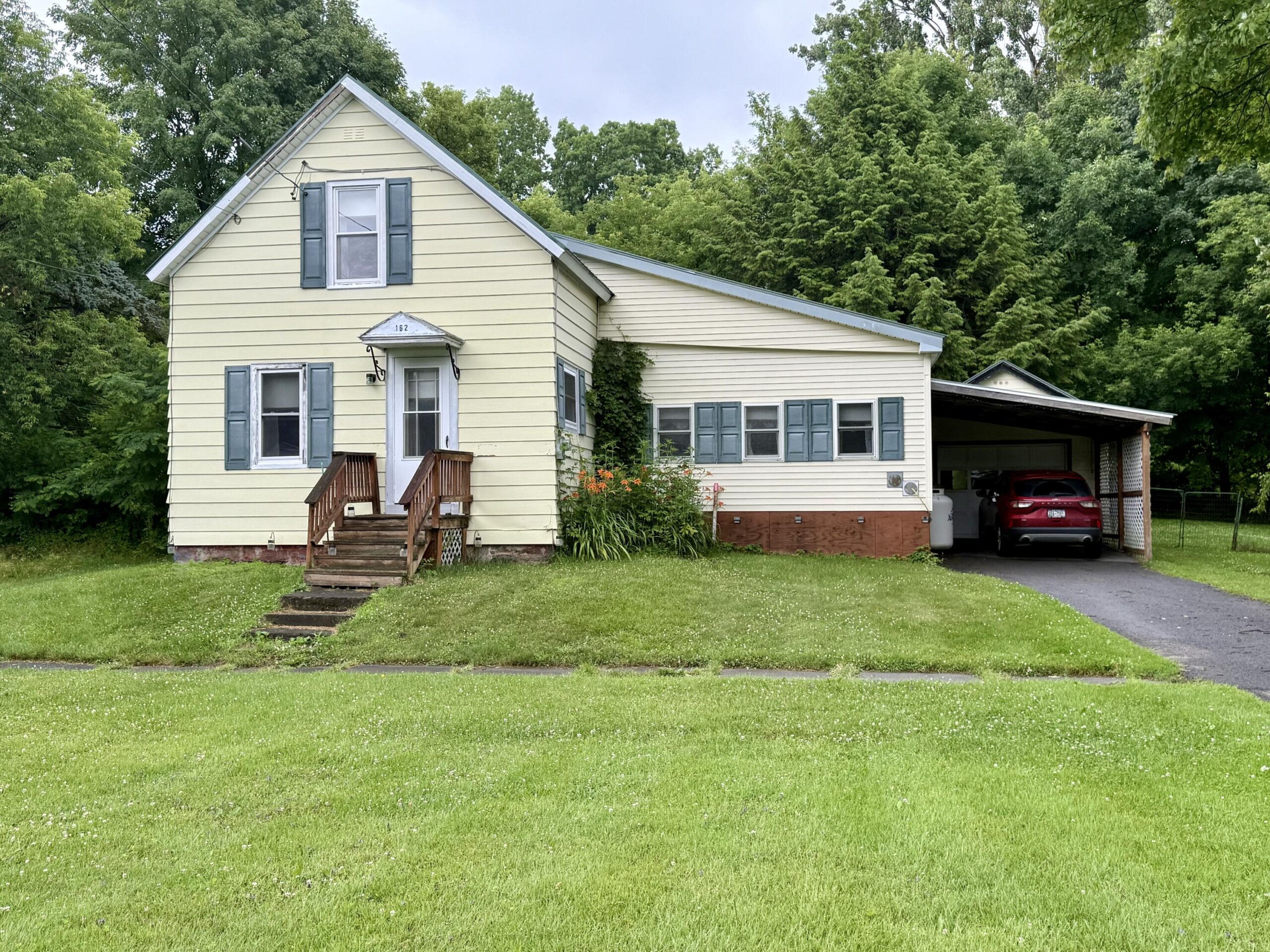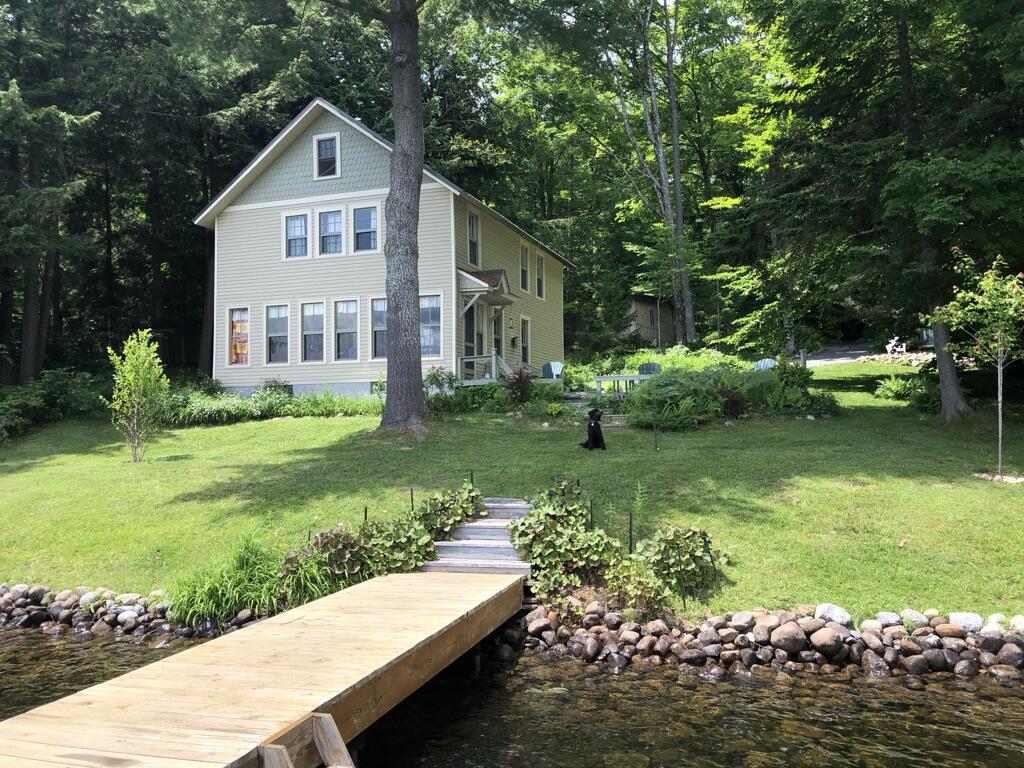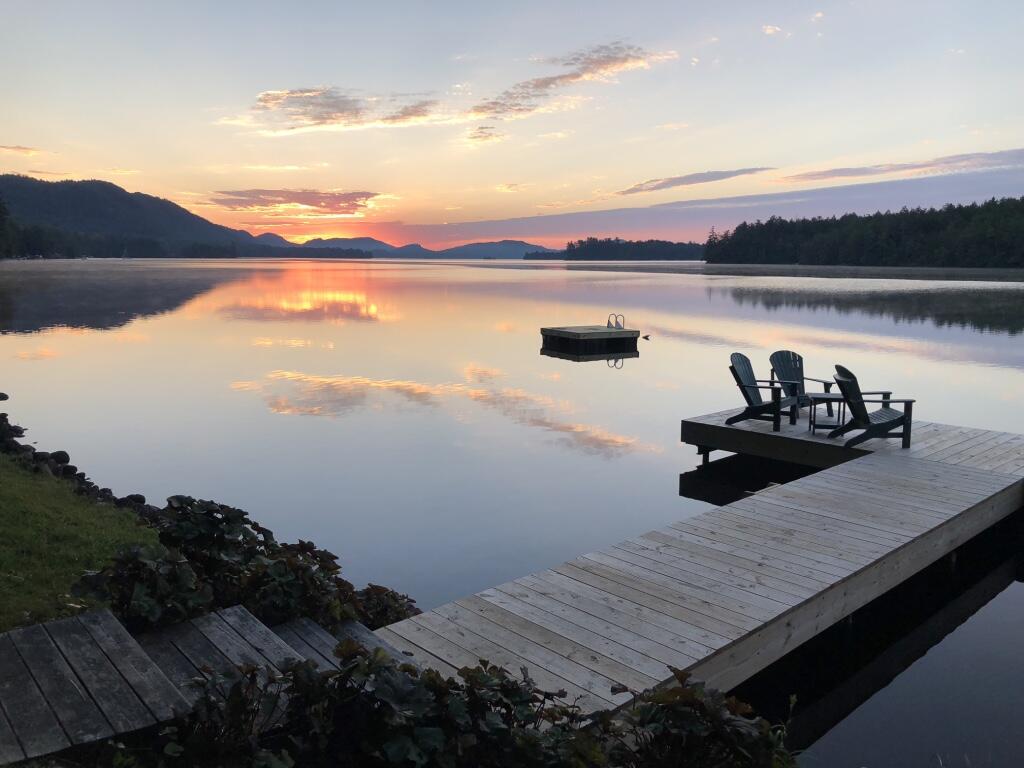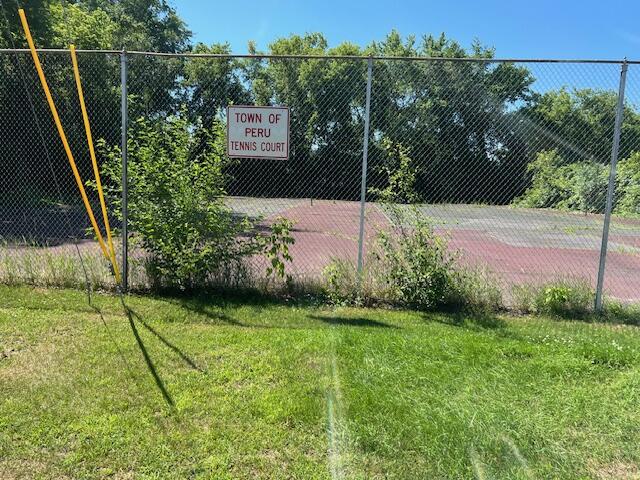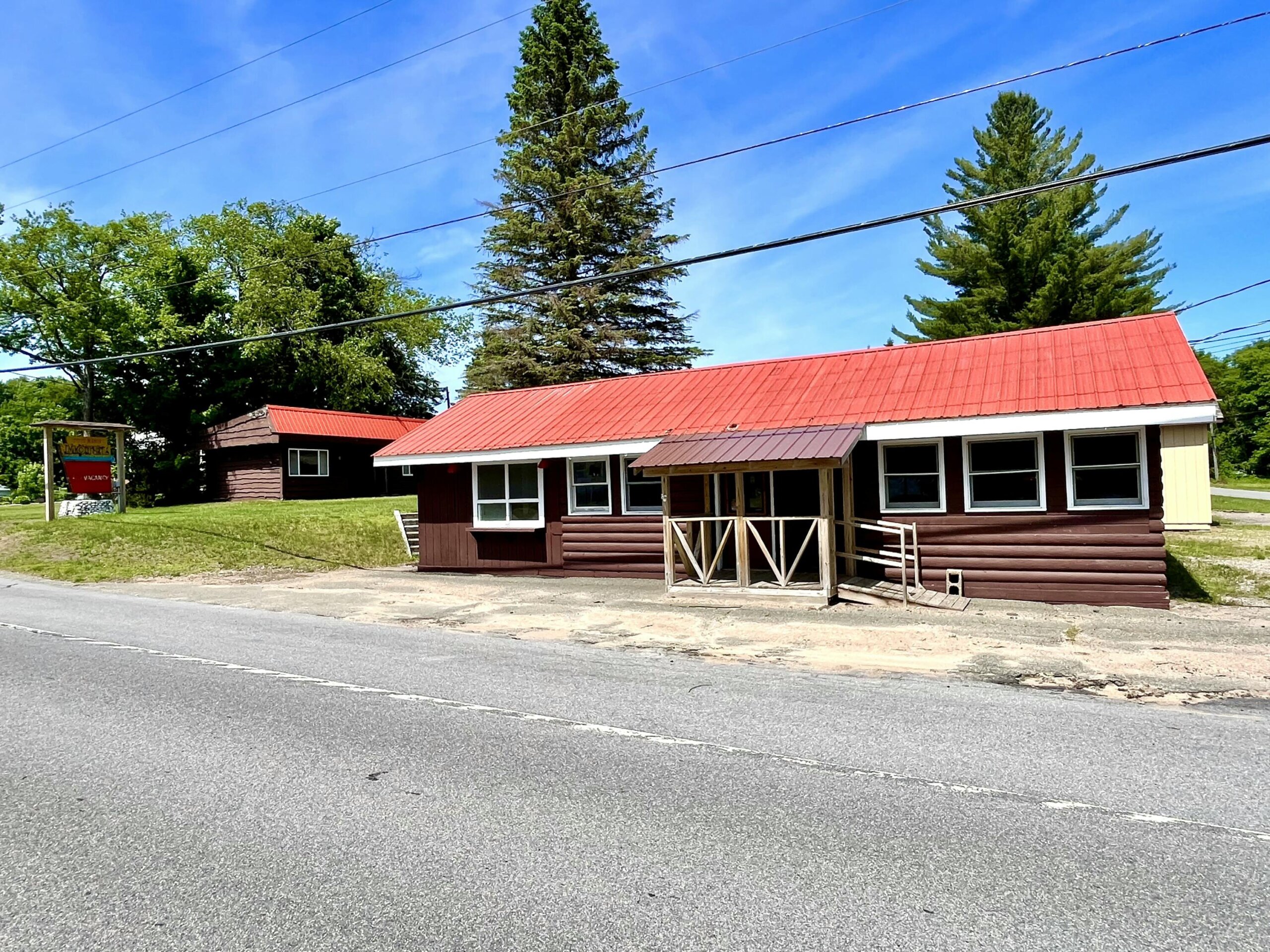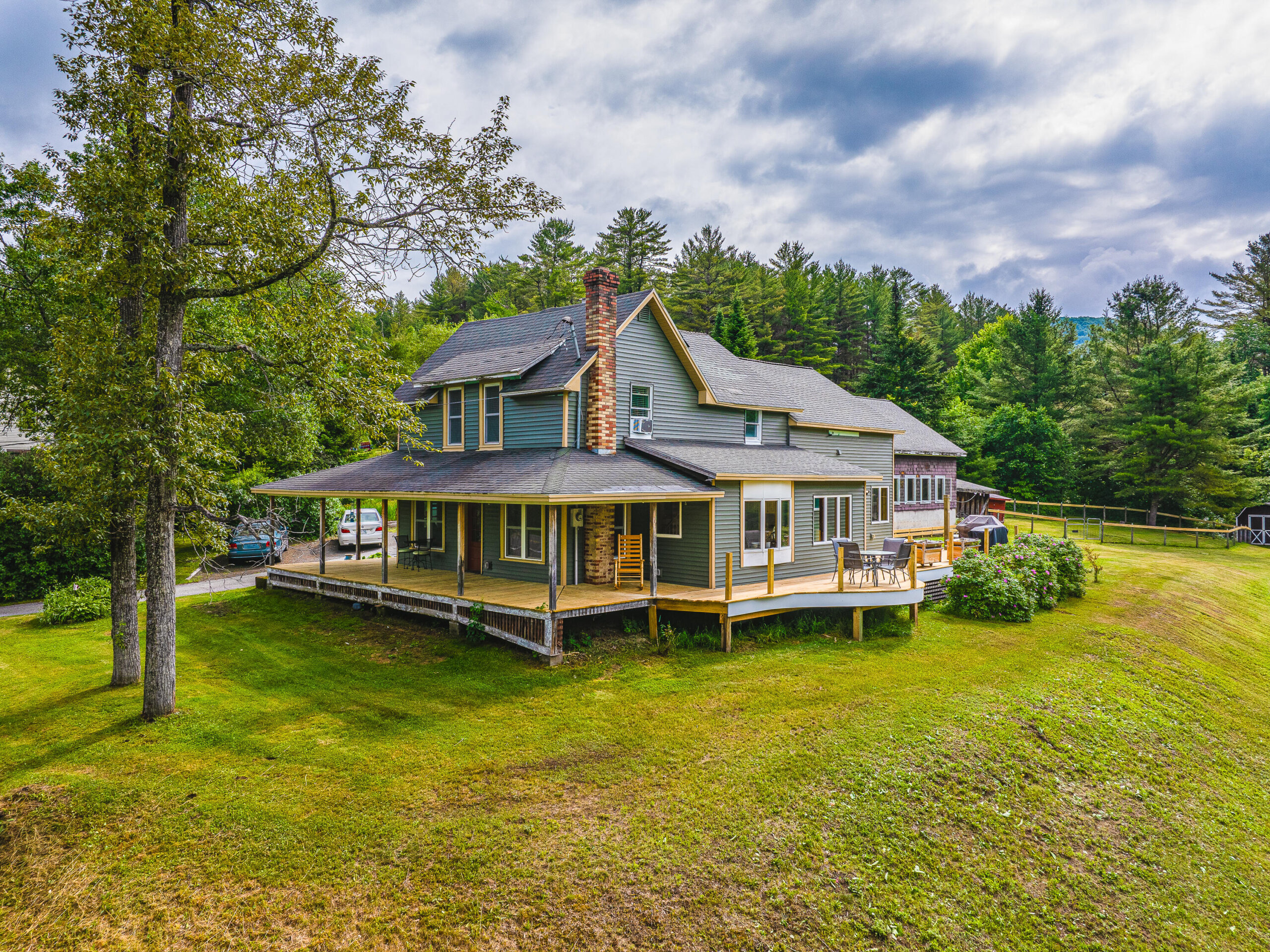It’s hard to find a place quite like the Adirondacks. From the mountains to the lakes, to the quaint towns, to the overall beauty of the area, it’s easy to create an experience that’s all your own because the options are endless. The same can be said of the options for real estate and vacation rentals. At the same time, too many choices can become overwhelming when you’re searching for properties. That’s why we recommend identifying the type of property that will work best for your needs before you start your search. To help, here are the differences between some of the most common options: condos, townhouses, and timeshares.
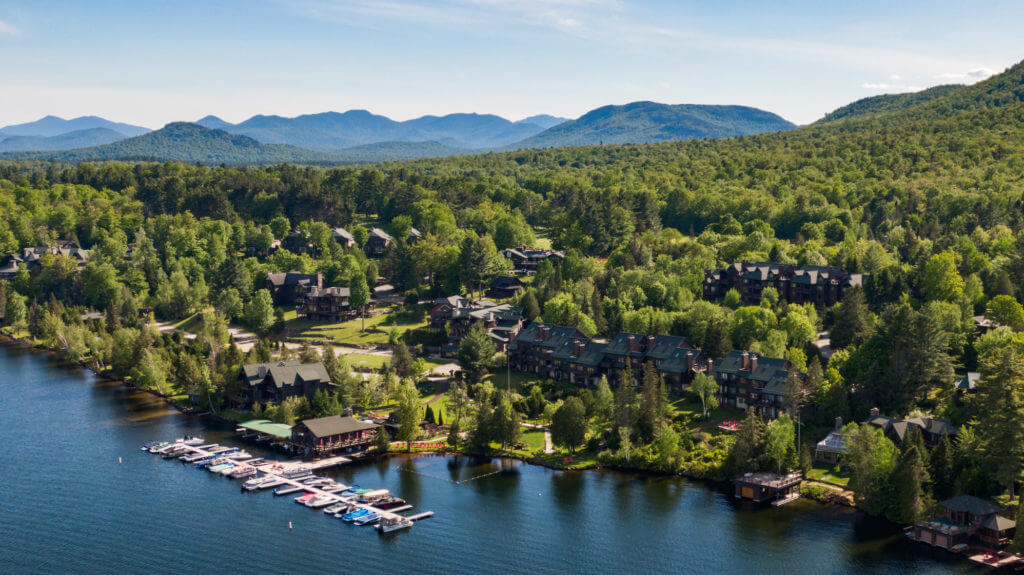
Pros & Cons of Condos
Condominiums, or condos for short, are single, residential units within a larger building. Often buildings will have several units per floor, so you may have units above, below, or next to you.
Pros
- You’re only responsible for the maintenance inside your unit and typically pay homeowner’s association (HOA) dues to cover the maintenance of the building’s exterior, as well as amenities and common areas.
- Depending on the property, you often have a range of amenities such as a pool, gym, tennis courts, dog park, clubhouse, and perhaps a front desk attendant or other services.
- Home insurance rates are typically lower because you only have to insure the interior of the unit.
Cons
- Less privacy than a single-family home or even a townhouse if you have other units all on sides.
- All those amenities often come with higher HOA fees, although it depends on the property.
- You may find more HOA rules and regulations in a condo setting because they are more involved in daily life.
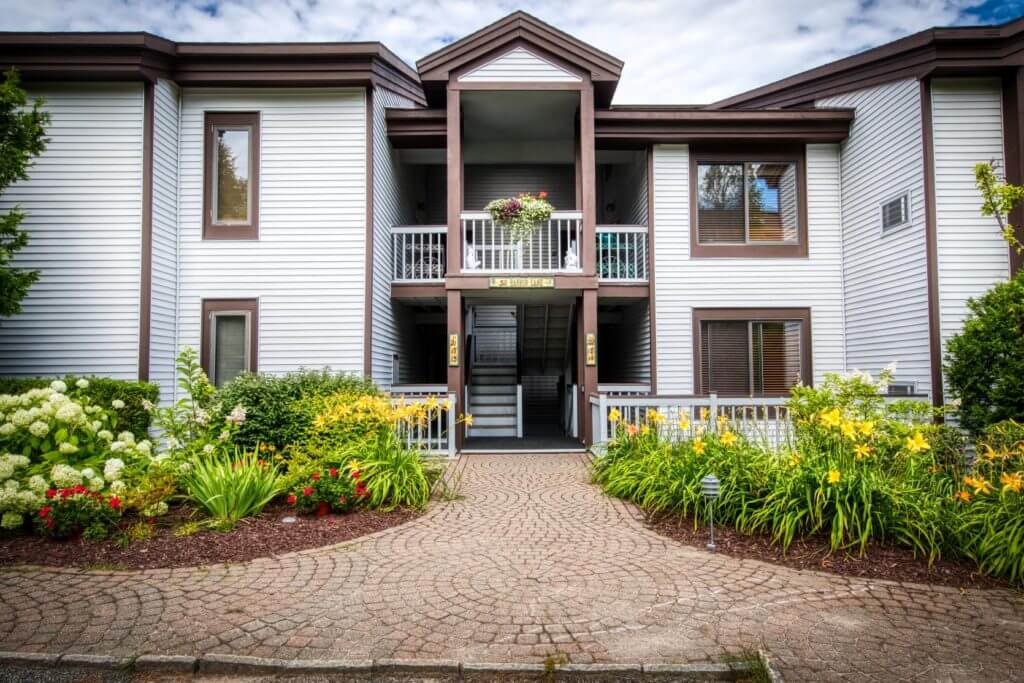
Our Take on Townhouses
You could consider a townhouse as a cross between a single-family home and a condo. They’re often two or three stories tall so you’ll share walls on either side but won’t have anyone above or below you.
Pros
- You may have options in terms of ownership. It depends on the property but you may be able to choose whether you want exterior and yard maintenance (condominium-style) which would be covered by HOA fees. Or, whether you’ll be responsible for maintaining the interior, exterior and yard yourself. Either way, the HOA is responsible for common areas.
- More privacy than a condo, but less than a single-family home.
- Townhouses are typically larger than condos.
Cons
- Traditionally, townhomes have fewer amenities than condos. But that’s not always the case, especially in newer properties.
- While you may pay less in HOA fees (because it has fewer amenities), you won’t escape the fees or rules and regulations entirely when it comes to landscaping, decorations and upkeep – pretty much anything outside your walls.
- Home insurance may be higher if you need coverage for both the interior and exterior.
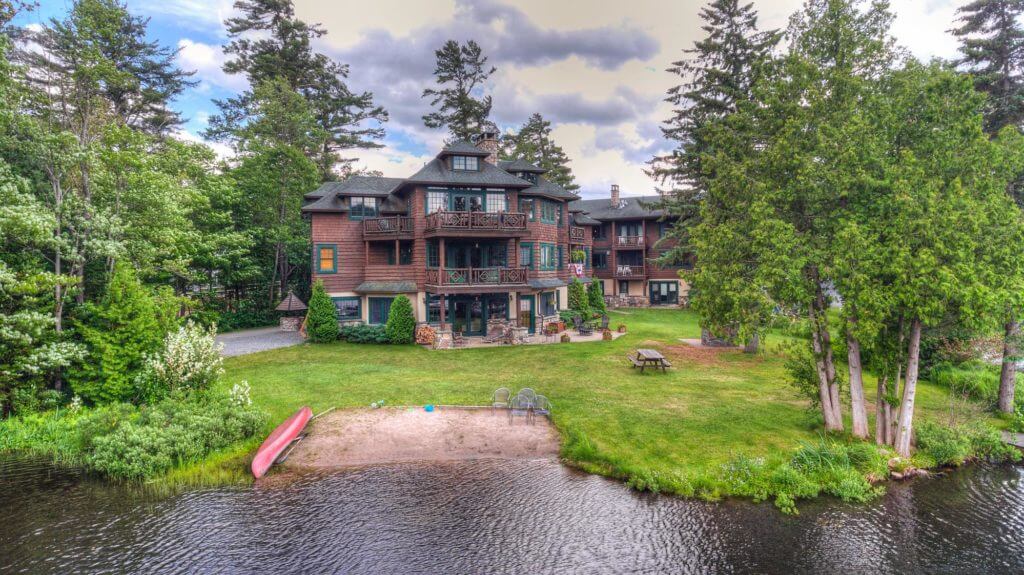
How Timeshares Factor In
While timeshares are most often condos, technically they can be any type of real estate that multiple people own. It’s a form of vacation property ownership in which you are buying time. Each owner gets a certain number of weeks per year in which they can use the property, for example.
Timeshares typically use one of these types of arrangements:
- Fixed week – A specific week or weeks in which you use the property each year.
- Floating week – Use of the property for a week or weeks during a predefined period.
- Points – Your timeshare is worth a certain number of points in which you can use to access other properties in the same system.
There are pros of timeshares such as predictability, a desirable location, resort-like amenities, and professional management. But there are a number of cons as well including a lack of flexibility, potentially high upfront and ongoing costs, difficulty ending your contract, and/or reselling.
For more information on Adirondack real estate and Lake Placid vacation rentals, contact our expert team at Merrill L. Thomas, Inc. today!
